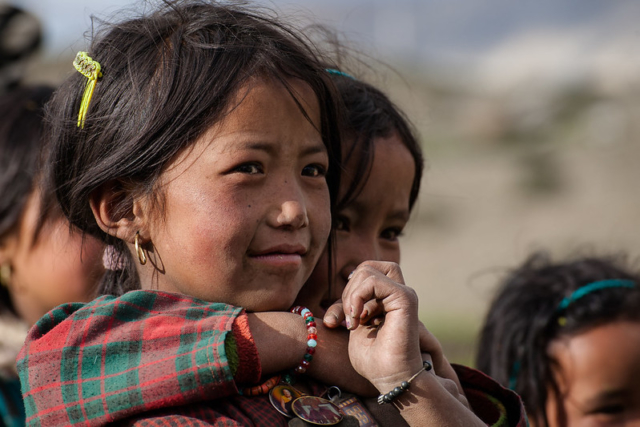5 Organizations Fighting Child Marriage in Nepal
 Despite becoming illegal in 1963, child marriage remains a common practice in Nepal. Almost 40 percent of girls in Nepal will be wed before the age of 18, and 10 percent of girls will be married before the age of 15. These statistics place Nepal with the 17th highest prevalence rate of child marriage worldwide. As of 2017, there were 587,000 child brides in the country. The vast majority of these marriages are arranged, sometimes with significant age differences. Furthermore, the brides in child marriages are more likely to experience domestic violence and rape.
Despite becoming illegal in 1963, child marriage remains a common practice in Nepal. Almost 40 percent of girls in Nepal will be wed before the age of 18, and 10 percent of girls will be married before the age of 15. These statistics place Nepal with the 17th highest prevalence rate of child marriage worldwide. As of 2017, there were 587,000 child brides in the country. The vast majority of these marriages are arranged, sometimes with significant age differences. Furthermore, the brides in child marriages are more likely to experience domestic violence and rape.
Activists claim that prevalence rates are increasing in some districts of the country. This is occurring despite the government announcing in 2014 a target to eradicate child marriage by 2030. However, there are a plethora of organizations working to combat child marriage in Nepal. Many of these organizations are working in tandem with the government to ensure that the 2030 goal is achieved. Keep reading to learn more about the top five organizations fighting child marriage in Nepal.
5 Organizations Fighting Child Marriage in Nepal
-
UNICEF: The humanitarian branch of the United Nations has been instrumental in both raising awareness and tackling the problem of child marriage in Nepal. In 2016, UNICEF launched the Global Program to Accelerate Action to End Child Marriage, focusing on Nepal and 11 other countries. This program manifests through training community religious leaders to advise against child marriage. In addition, efforts include building health posts that protect child brides by teaching them about reproductive health, as well as mobilizing adolescent girls.
-
Girls Not Brides: Girls Not Brides and UNICEF worked in tandem to craft Nepal’s National Strategy to End Child Marriage in 2016. The plan includes six components: implementing laws and policies, empowering girls, providing quality education for girls, engaging men, mobilizing families and communities to change norms and providing services. One tangible action taken thus far includes raising the legal marriage age to 20. Another action includes providing cash incentives for families to support their daughters’ educations. Girls Not Brides also works closely with a variety of grassroots organizations that address the issue on the ground including Sakcham Rural Nepal, Loo Niva Child Concern Group and Janaki Women Awareness Society.
-
Kapilvastu Integrated Development Services (KIDS): A partner organization of Girls Not Brides, KIDS works in Kapilvastu, a district in Nepal, to improve women’s health services. Some of its projects include Safe Motherhood through WASH. WASH targets recent mothers, including child brides, to promote hygiene mothering practices such as hospital deliveries. Another project is the Women’s Health Program, which informs poor adolescent girls about their reproductive health to protect young brides.
-
Loo Niva Child Concern Group: Another Nepali organization, Loo Niva specializes in children’s rights. The organization protects vulnerable children from exploitative practices, such as arranged child marriages. In particular, the organization has worked in the southern Lalitpur rural area. There, the organization promotes intervention education programs about the dangers of child marriage and how it contributes to issues such as school dropouts.
-
Human Rights Watch: Although not involved in grassroots and community efforts, Human Rights Watch plays an instrumental role. The organization’s efforts hold the Nepali government accountable for its goal to end child marriage. Additionally, it has consistently surveyed the Nepali government’s actions and reported when, for example, the Nepali government delayed releasing in its strategic plan in 2016. This exposure is necessary to pressure the Nepali government to achieve its target.
– Chace Pulley
Photo: Flickr
